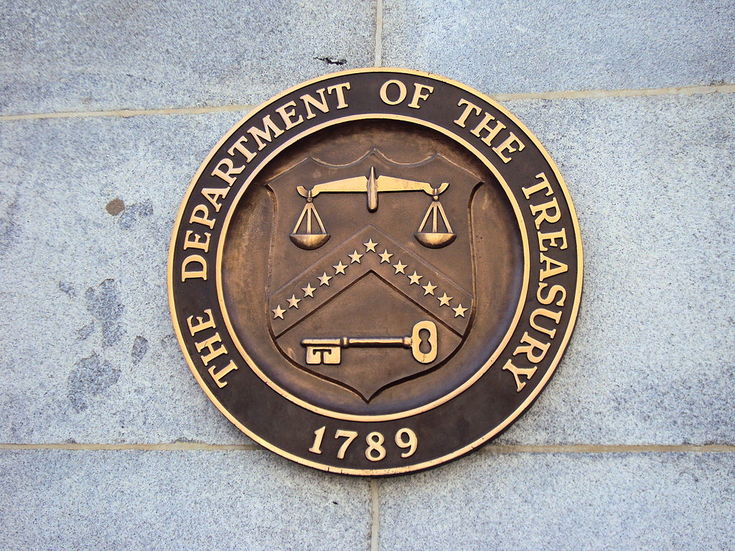The US Treasury issued an extensive analysis and commentary of the state of affairs in the most established sector within fintech, marketplace lending. This comes the same week as the founder and CEO is ousted amidst internal reports of misconduct within the pioneer and leader in the sector Lending Club. The week in the digital lending space has not been uneventful to say the least.
To deconstruct the Treasury’s analysis, it would be unfair to point only to the concerns about marketplace lending as the report is comprehensive and broad. In it the Treasury details several positive trends and spillover effects of marketplace lender pioneers, such as the increased service offered to often underrepresented consumers, the efficiency in the underwriting and decision making process and the benefits of increased competition in an often brick and mortar dominated market.
The notion of caution was issued around the sustainability and stability of business models in marketplace lending, particularly as it concerns a novel and dynamic market that is still finding its long term footing. The Treasury noted how the macro environment these companies have grown up to and developed in, has consisted of largely previously anomalous conditions, low interest rates, a financial crash, on one hand a clear increase of requirements on brick and mortar lenders and on the other a push toward more transparent, efficient models in financial services. Its clear these conditions are not permanent and shifting the environment will have an impact on business models.
To extrapolate these points, questions around longer term models arise: how will these business models be sustained as competition increases cost of capital and cost of borrower acquisition? How will business models adapt in an environment of increasing interest rates and or scarcity of capital? How will growth be impacted by the sheer limits of the consumer market? There are several questions and answers to come, but not in advance.
Business models adapt and environments change, so these questions should not be viewed as any omen stemming from a crystal ball. No one knows the future and marketplace lending is still at its first cycle through the market. That itself should raise questions, concerns even, but rather than looming as onerous cynicism it should translate into actionable diligence on the part of the investor and lender, and the seeking of improving process and focusing on the fundamentals of the business, diligence and underwriting.
In our work with financial institutions and fintech pioneers, we often refer to three tenets of what the concept of digital finance builds on, that is efficiency, access and transparency. Looking at recent events, its clear these values are not to be left unchecked and they are not a given just because a service embodies a digital native presence. If anything else, consumers, partners and stakeholders should hold a spotlight to them rigorously to ensure that perceived transparency is not misused.
By detailing workflows and providing access to detailed reporting for market participants, can digital finance pioneers and leaders alike provide a way to further the conversation and develop toward optimal models that allow for learning in the market, but also keep the market participants abreast of events. We all have a role to play in the market and we should not accept the status quo at face value or the service we may get, but require and hold all participants accountable in the stride toward universal best practices that go above and beyond that of the the incumbent financial services market.
Image credit to: MohitSingh (Own work) [CC BY-SA 3.0 (http://creativecommons.org/licenses/by-sa/3.0)], via Wikimedia Commons

About the author - Markus Lampinen
Internationally awarded digital finance entrepreneur, active in pioneering new securities models worldwide. Has worked in digital finance since 2009, recruited over 100 individuals, built up a operations on six continents and been recognized as one of the top 100 thought leaders in crowdfunding. Markus has pioneered new funding models in the US and Europe, advised policy makers worldwide - including the SEC, the European Commission and Italian regulator CONSOB - for more effective markets, and worked with visionary organizations such as the World Bank and the Kauffman Foundation to improve frameworks for digital finance. Markus has studied computer science and economics (M.Sc).
Internationally awarded digital finance entrepreneur, active in pioneering new securities models worldwide. Has worked in digital finance since 2009, recruited over 100 individuals, built up a operations on six continents and been recognized as one of the top 100 thought leaders in crowdfunding. Markus has pioneered new funding models in the US and Europe, advised policy makers worldwide - including the SEC, the European Commission and Italian regulator CONSOB - for more effective markets, and worked with visionary organizations such as the World Bank and the Kauffman Foundation to improve frameworks for digital finance. Markus has studied computer science and economics (M.Sc).


 RSS Feed
RSS Feed